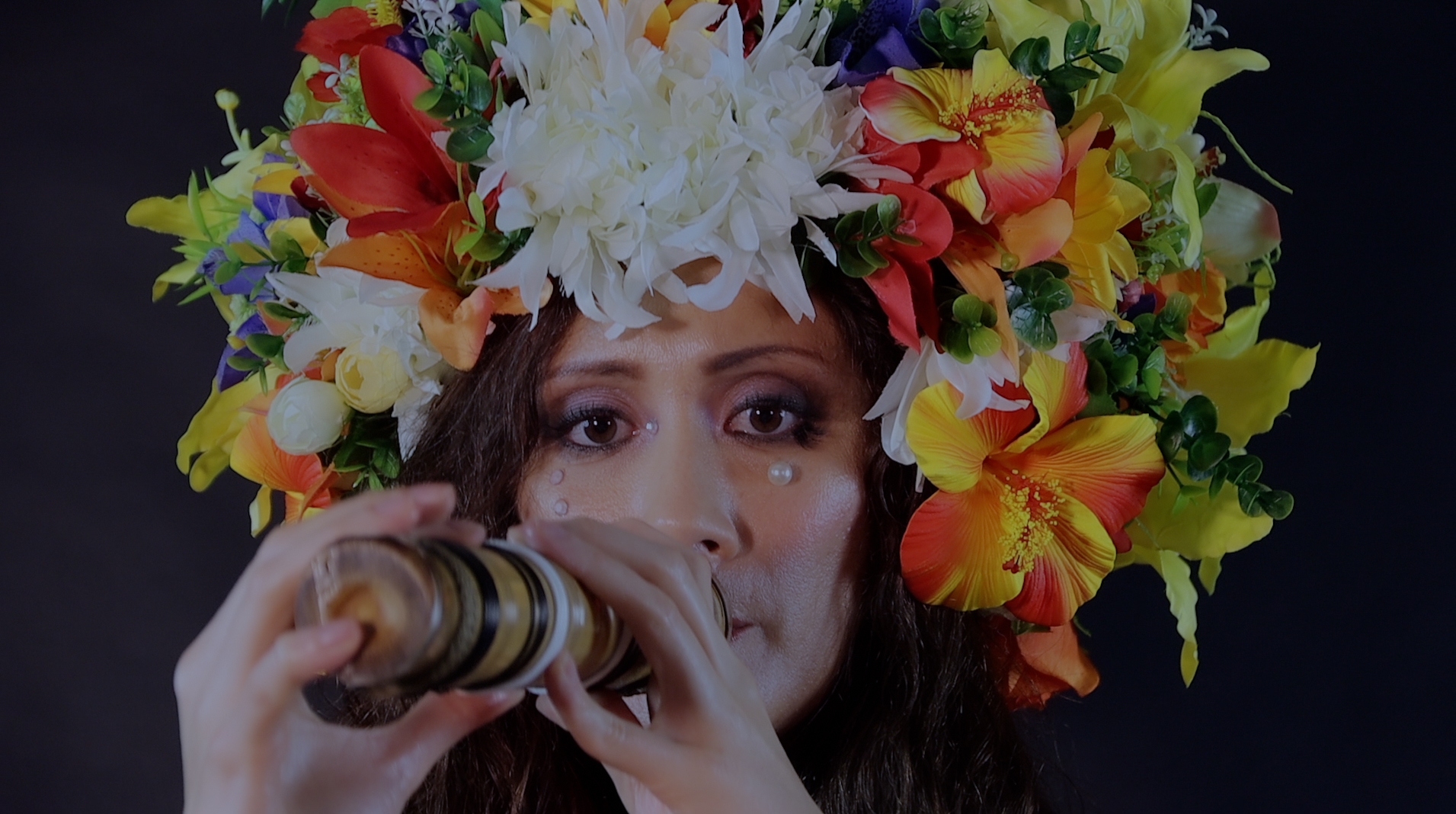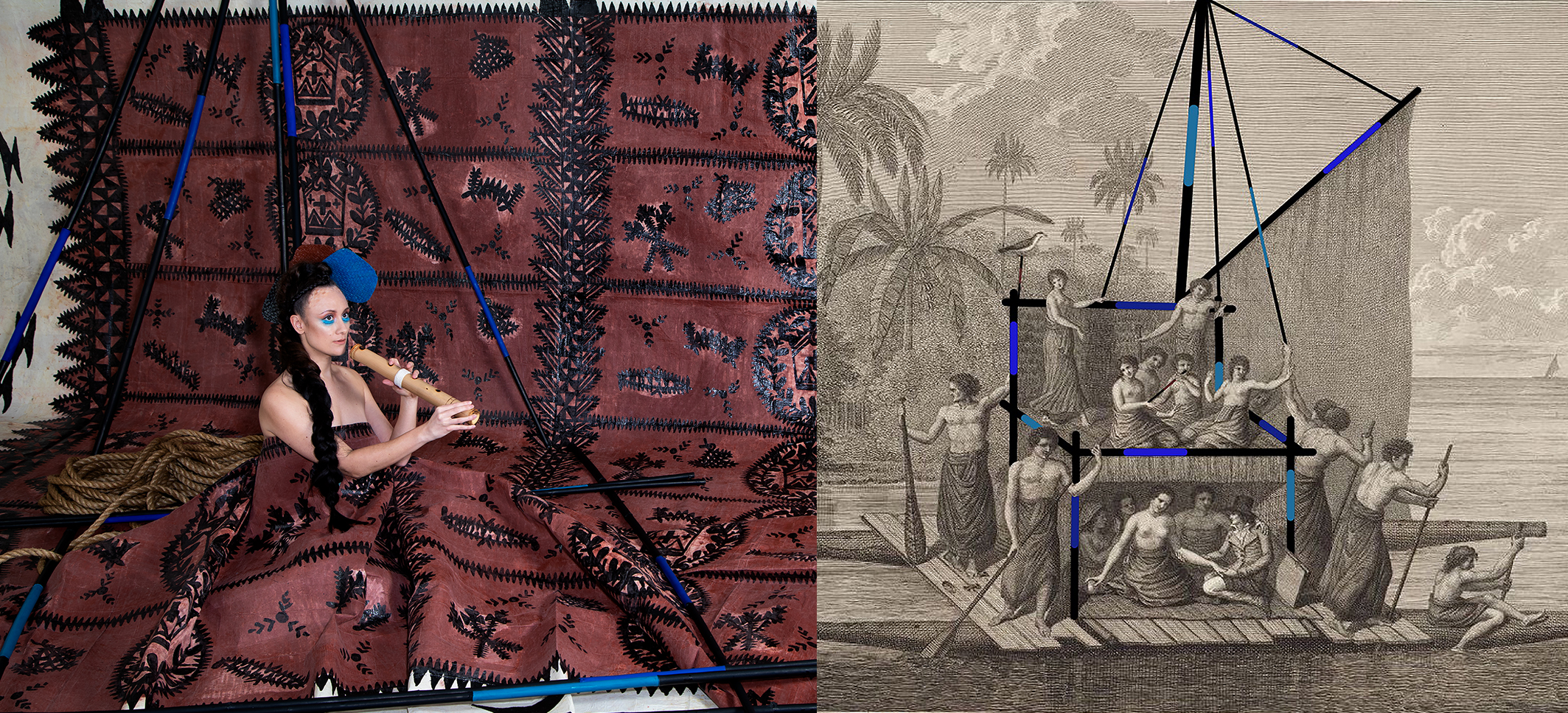
Adriana Māhanga Lear interrogates the impacts of colonialism and patriarchy on Tongan culture in Fafangu: to awaken, an expansive new body of work spanning sound, sculpture, installation, print, and live performance now showing at Wollongong Art Gallery.
The multimedia exhibition is a culmination of the Wollongong-born, queer Tongan-Australian artist's PhD research on revitalising and re-imagining Tongan concepts of mourning, memory, sound, and spiritual resistance.
Central to the exhibition – both as instrument and symbol - is the fangufangu, a Tongan bamboo nose flute once used to awaken chiefs and royalty from sleep. Steeped in cultural and spiritual meaning, the instrument was banned by missionaries in the early 19th century alongside Indigenous Tongan music and religious practices.
Classically trained on the flute as a child, Lear first encountered the fangufangu in academic texts before seeing it performed in Auckland in 2019. After studying its history and speaking with players and makers, Lear commissioned a fangufangu and began composing for the instrument in 2022.

Image: Adriana Māhanga Lear, Fafangu ae fangufangu–Awakening the fangufangu, 2024
"Fafangu: to awaken focuses on gender, sexuality, and identity in the Pacific, showing Lear's personal and cultural approach to these topics," Wollongong Art Gallery Director Daniel Mudie Cunningham said.
"With practices rooted in both research and embodied performance, Lear's work challenges dominant modes of knowledge and listening. It invites audiences into an active, reciprocal relationship with space, sound, and history.
"Originally commissioned and presented by Casula Powerhouse Arts Centre in 2024, the exhibition gains powerful new resonance in this special homecoming presentation at Wollongong Art Gallery on Dharawal Country, a region with deep ancestral ties for the artist."
Fafangu: to awaken is on exhibition at Wollongong Art Gallery until 7 September 2025.






